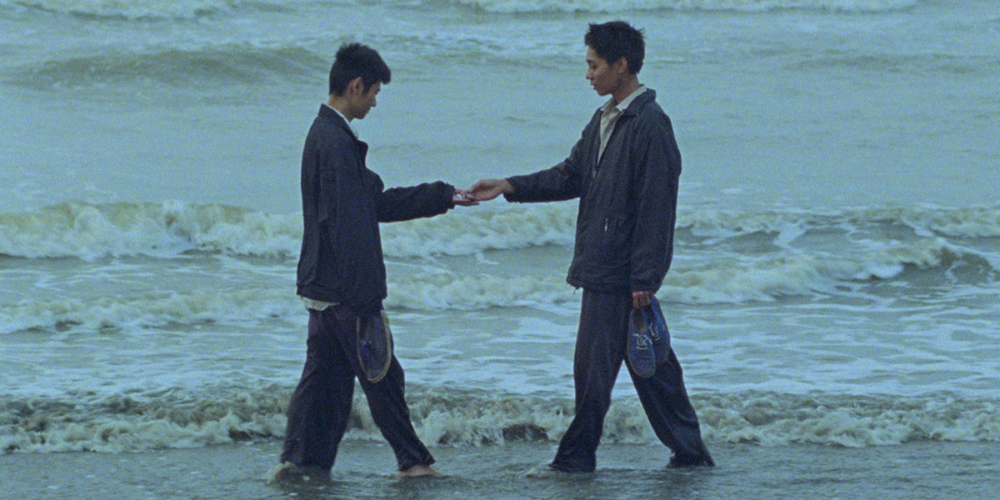This article was updated on February 11th, 2025
After four years of smaller, lockdown-limited, and strike-affected festivals, the Toronto International Film Festival was back in full force this past week. This year’s TIFF featured an incredible star-studded lineup with films from Oscar-winning directors, Oscar-winning performers, Grammy-winners, perhaps some major players in luxury fashion, BRAT Summer Councilwomen, and just about every white boy of the month from the past five years. With over 200 films showcased at this year’s festival, keeping track of the releases to anticipate after festival season winds down can feel overwhelming. With only a handful of TIFF features being queer-coded, we’ve picked a few films with 2SLGBTQIA+ themes to add to your watchlist. Some of these films are highly anticipated, some lesser-known—a few we hope will spark queer-cinema commentary, and a few we know will simply deliver queer-cinema satisfaction. Here is a list of eight 2SLGBTQIA+ coded TIFF films to watch, ranked from least to queerest!
8. Conclave
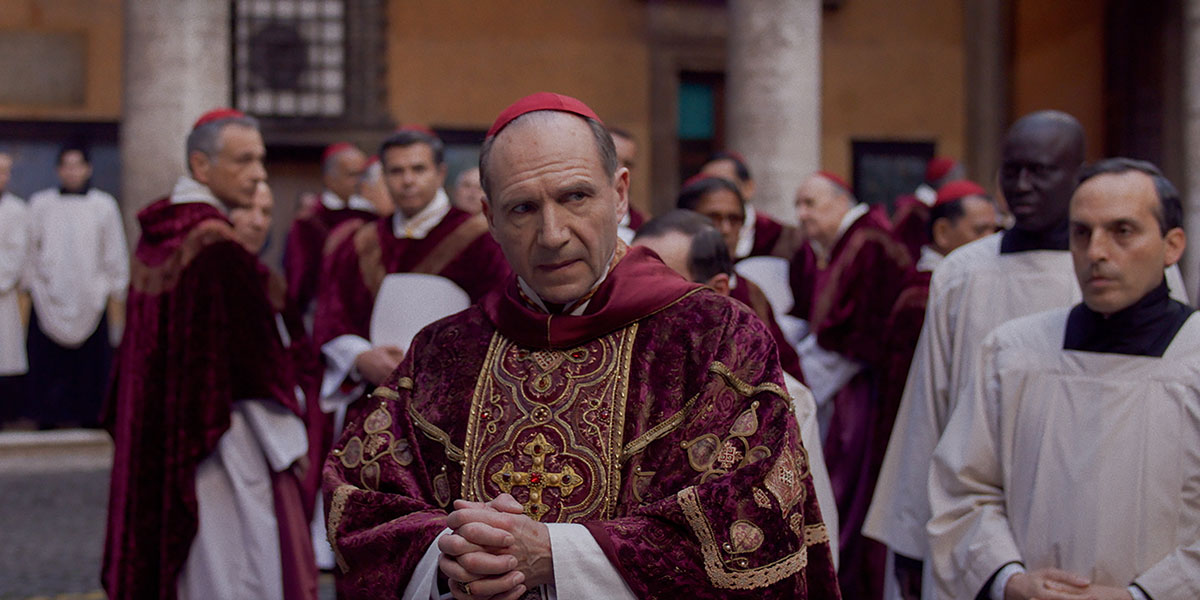
Directed by Edward Berger
It’s hard to discuss why Conclave fits on this list without fully divulging the plot. Conclave finds itself so far down because, while it does have 2SLGBTQIA+ themes, their integration is, frankly, disappointing. The film plays out as an exposé on the process of voting in a new Pope. There are struggles for power, scandal, turtles, and a Ralph Fiennes performance so compelling that the viewer truly becomes invested in this race of morals. Edward Berger (All Quiet on the Western Front) brings cinematic direction that could be oil-painted: overhead shots of Cardinals shuffling together under blood-red umbrellas, nuns texting, Sergio Castellitto hitting his vape pen during heated discussions. It is an enjoyable film, with clear thought and consideration put into every detail.
It’s the film’s high attention to detail that makes it fall flat from a queer perspective. Themes of sexism, racial prejudice, and 2SLGBTQIA+ renouncement are sprinkled in as plot devices with far too much casualness for a film about the Pope. Conclave is delivered through the lens of the good-willed Cardinal Lawrence (Ralph Fiennes), leaving its audience with nothing more than sugary attempts at resolving the worst traumas produced by the Catholic Church—and no real introspection into its institutional shortcomings.
The film focuses so much on the good and evil of individual members of the Church that when good Cardinals are presented (cue the queer plotline), they seem to overshadow the larger systemic issues at hand. In such a dialogue-heavy film, it’s a wonder that no one stops to question whether the problem lies simply in bad men falling into positions of power or if there is a deeper structural issue perpetuating the cycle of hatred that the left-wing Cardinals are so desperate to move on from.
A political thriller about the appointment of a new Pope? Intriguing. A religious institutional thriller that uses marginalized characters as two-dimensional plot devices? Dated.
Releases in theaters October 25, 2024
7. Diciannove
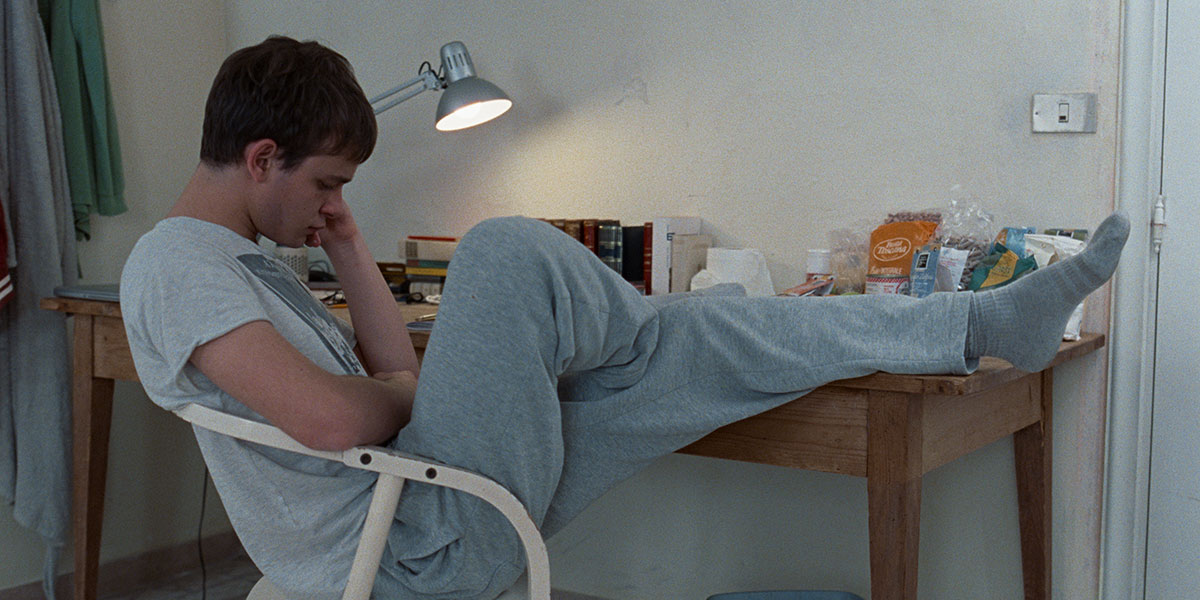
Directed by Giovanni Tortorici
Diciannove is a slice-of-life semi-autobiographical directorial debut by Giovanni Tortorici (previously the assistant director to current babydoll Luca Guadagnino). It follows 19-year-old Leonardo as he experiences the boredom, the utter queerness of it all, and the directionless meandering of being 19. Visually, it is breathtaking. The juxtaposition of almost-neo-classical shots and melodramatic film scores over scenes of young adults in 2015 clubwear replicates the memory of late adolescence. Dry-humored proclamations from our main character about wanting to die enrich the half-narcissistic, half-nihilistic feeling of being 19. It also feels slightly Luca Guadagnino-coded. In all ways, this film is directionless, which should work considering the directionless nature of being 19 but feels slightly unrefined in its editing. Several scenes could have been cut, shortened, or re-imagined. In terms of queerness, this film is gay through and through. Leonardo’s sexual fluidity isn’t given too much pressure which is refreshing. There are no long-term or serious romantic or sexual relationships that explore these aspects of queerness; instead, it is just the life of a kid who feels sexual attraction, and boredom, and directionless meandering, and loneliness, and the pains of being 19. This movie didn’t feel particularly spectacular but did bring a sense of comfort and familiarity. It wouldn’t be surprising to see screengrabs of this film circulating curated art-meme pages.
Limited release September 30, 2024
6. Bird

Directed by Andrea Arnold
There is nothing incredibly shocking about this film, but experiencing the small adventure of Bird with 12-year-old Bailey is a sweet journey. Directed by Andrea Arnold (American Honey), this film follows Bailey, who is 12 years old and fiercely resisting the changes rushing into her life and all through her body—the often unwelcome push from human being to woman. Bailey meets Bird (Bird, perhaps, like the British slang for girl) and begins the journey of helping him find the family he lost years ago while also avoiding the impending marriage of her father, Bug (Barry Keoghan), to his girlfriend of three entire months. Concepts of gender binaries and gender expression are woven into this story with a hands-off approach, giving the audience room to suspend their predisposed ideas of gender and simply sit with what it means to be human.
Visually, Bird perhaps displays the most natural and organic use of cellphones in a film, teetering between camcorder quality and crisp footage from Bailey’s phone—adding layers to the juxtaposition of Bailey’s worldview and the adult eyes that watch her. The characters in this film are real, ridiculous, and lovable (um, Barry Keoghan Coldplay sing-along, anyone?). The film meanders without losing direction, mixing in just enough magic realism to feel less like a plot twist and more like something that truly exists in this life but we have not yet been privy to. Andrea Arnold brings forth a film with a close lens and plenty of space for viewers to breathe it in. This film was my favorite feature at TIFF, leaving me with the comforting reminder that no one’s no one.
Limited release November 8, 2024
5. Emilia Pérez

Directed by Jacques Audiard
Earning an 11-minute standing ovation at this year’s Cannes Film Festival and 1st runner-up for the People’s Choice Award at TIFF, Emilia Pérez is a queer film worth discussing. The musical follows a retiring Mexican cartel boss seeking assistance in her transition to coming out as a woman. The slight absurdity of its concept makes it a polarizing watch. The songs are delivered with complex, slightly meta, Broadway-esque choreography, which might not seem cohesive with such an intense plotline, but the result is captivating. Some numbers may move you to tears while others will have you thinking, “You know what, sure, why not?” It’s camp!
The performances by the ensemble cast are evocative, dynamic, and emotional. Oddly, despite the film’s focus on Mexican culture and the epidemic of missing folx within Mexico, the cast and director are near-void of Mexican representation. This knowledge clouds the delivery of what this film aims to evoke, edging the wonder of whose story we are truly witnessing. To add to this rumination, the film maintains a heavy emphasis on surgery as central to affirming Emilia’s gender which may be seen as limited in scope as not all trans folx have access to or desire physical augmentation for gender affirmation. Still, Spanish-born, Karla Sofía Gascón is incandescent in her portrayal of Emilia. French-born director, Jacques Audiard delivers a film that compels us to question whether the people we were before can ever be abandoned and whether our mistakes can ever truly be atoned for (a thought Audiard will most likely share regarding the film’s pit stop in… Tel Aviv).
The choreography, the sapphic love affair, Selena Gomez’s blonde bob, and a trans story fulfilled by a trans actress – Emilia Perez is solidly camp, it is arguably controversial, and it is pretty damn queer. Yet, with so few spaces offered to trans-media on such a grand platform, is this the film the trans community would have chosen to take up that space?
Releases in Theatres November 1, 2024 and available to stream on November 13, 2024
4. Queer
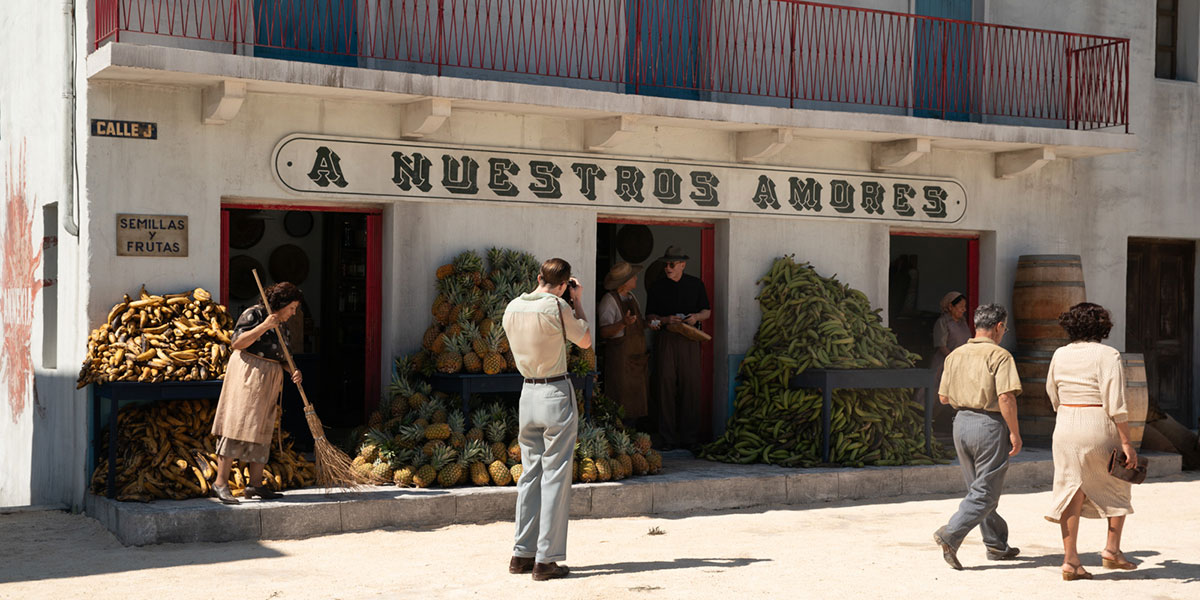
Directed by Luca Guadagnino
Considering its name, Queer finds itself in the middle of this list because, although it is immeasurably gay, it isn’t as queer as anticipated. It is a sensational visual trip with overly constrained characters. Queer is an adaptation of William S. Burroughs’ assumed-biographical book of the same name. The story, in short, is an age-gap romantic tryst between Lee (Daniel Craig) and the perhaps sexually curious Allerton (Drew Starkey), and Lee’s pursuit of a shared psychedelic trip with his young lover. Though perhaps in reflection of Burroughs’ cut-and-paste writing style, the film’s writing lacks the justification needed to empathize with the relationship between Lee and Allerton or the characters as individuals. Allerton is salacious but limited (to say the least)—limited in dialogue, scope, and dimension. Lee is slightly more vibrant but still feels like a caricature. Both characters are at odds with their sexuality, but to what extent, we will never know, as it is just not exposed at the level you’d expect from a movie titled Queer.
Still, Luca Guadagnino’s (Call Me By Your Name) eye for beauty is undeniable—the psychedelic trip of naked Lee and Allerton merging, the glowing bodies in dimly lit rooms, Nirvana’s “Come As You Are” beating like a heart as we first see an illuminated Allerton catch Lee’s eye—these are signatures of Luca Guadagnino’s beloved style. He makes movies you could put on mute and still cry to (which is probably how I’ll rewatch this one if I can muster the courage to attempt the near 3-hour runtime again). Luca Guadagnino worked miracles, reviving a colorized blend of early 20th-century cinematography (like a 2024 Humphrey Bogart movie, but much gayer).
Watching this film within the same week as other queer films and sequentially to Luca Guadagnino’s prior films was anticlimactic. Amidst the caliber of queer films available today, I wonder where it leaves this one. The visuals, audacious music, and smutty scenes are enough to make this film a 2024 cunt classic. But at its bones, it lacks density.
3. Viêt and Nam
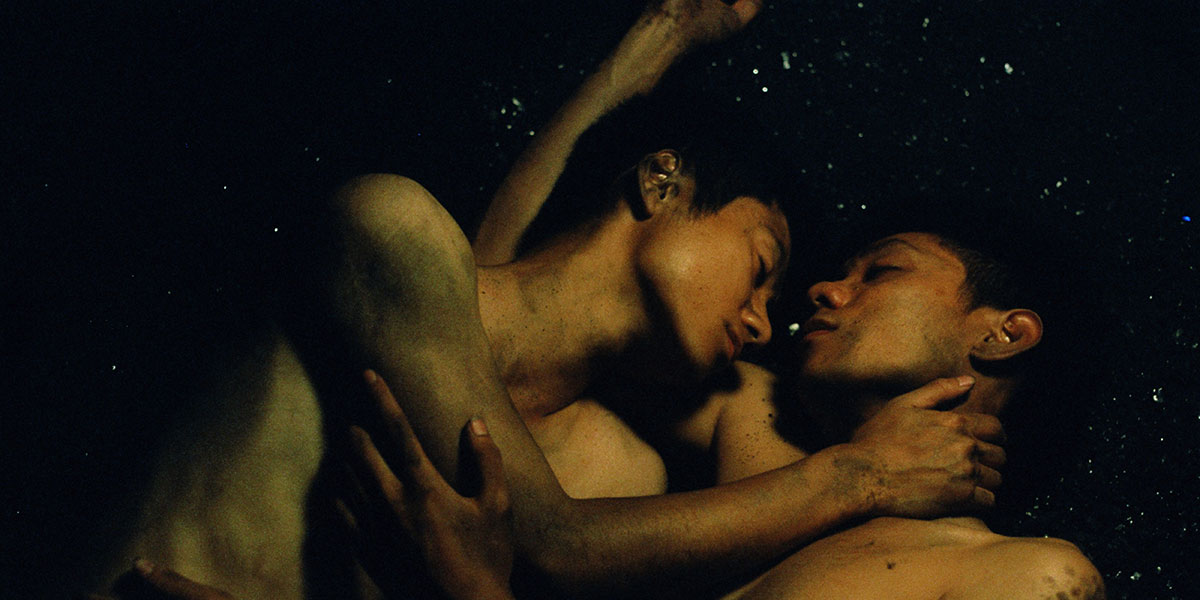
Directed by Trương Minh Quý
Viêt and Nam is the gay love story you write books about—or make movies about? The boundary-free love between Viêt and Nam would give Saltburn squirmers a catatonic shiver. The story follows the two coal miners, Viêt and Nam, as they navigate the final days leading up to Nam’s departure from their homeland. The unwelcome distance that is about to come between them is exacerbated by Nam’s mother, who is trying to find the body of the husband she lost nearly twenty years prior. In this film, time does not heal loss, nor does it fill the distance.
Viêt and Nam has been banned in its native Vietnam for its “negative views” of the country. This is something to note when diving into the starry world that Trương Minh Quý delivers to his audience. His weaving of glitter into sweat, coal, and cum is both brilliance and inspiration. There is nothing that separates these two lovers—no part of their skin untouched by the other, no fluid not ingested, bringing literal meaning to the phrase “all-consuming love.” Trương Minh Quý brings us one of the most beautifully intimate scenes on this movie list (and arguably one of the grossest) with Nam tenderly cleaning Viêt’s ear, and that’s all I will say about that.
At times, the movie feels like two different films occurring simultaneously, making the story feel slightly drawn out and making the film truly a slow-paced watch. Ultimately, this movie is intimate. It is satisfaction and innocence, longing and togetherness all at once—and it is adamantly, unapologetically queer.
2. Will and Harper

Directed by Josh Greenbaum
Will & Harper is a documentary following Will Ferrell and his longtime friend and former SNL co-worker Harper Steele as they take their first road trip across America since Harper’s transition. Their journey deep-dives into what life and their friendship now look like, framed by life-is-a-highway-esque moments and contrasting pit stops at predominantly cishet masculine spaces. There is a lingering fear for Harper’s safety as she returns to former places and faces that do not yet know her. Harper and Will’s lifetime of comedic training cuts tension and delivers a narrative that is poignant yet infused with lighthearted humor. As they explore all the newness that has rushed into Harper’s life, it’s apparent that this is not the average experience of someone who has transitioned—not everyone has a Will Ferrell to soften situations. Still, I do believe joining Harper on her journey will do a lot for so many.
It’s easy to see this film bridging the gap for all those big, hard-to-ask questions that arise while navigating coming out. From gender-affirming surgery and sexuality to new and old interests and lingering dysphoria, Will and Harper don’t shy away from truly exploring all that comes with this transition. The ending is left open, which beautifully aligns with the ongoing journey of learning from and listening to trans folks, and the ever-growing depth found at the heart of all friendships. Will & Harper is touching and wonderful, with a soundtrack that I will probably insist on playing during my own road trips—this very much includes Kristen Wiig’s original song written for the film, “Harper and Will Go West” (Spotify, please release it).
Releases to Netflix on September 27, 2024
1. Love in the Big City

Directed by E.oni
Love in the Big City is, in no small words, a gay son/thot daughter K-Drama in the best way possible. Loosely adapted from a short novel of the same name, the film takes a lighter direction than the original story. It follows Jae-hee and Heung-soo over a decade as roommates navigating school, relationships, and their friendship. While 2SLGBTQIA+ cinema is not entirely new to South Korean film, the popularized K-Drama style rarely explores queer stories to the extent that this film does, making Love in the Big City a significant step forward.
The film examines and challenges contemporary South Korean social culture, from the misogynistic slut-shaming inflicted on Heung-soo to the blatant homophobia endured by the closeted Jae-hee, shining a floodlight on themes usually sidelined in K-Dramas. The friendship between Jae-hee and Heung-soo is tender and complex giving the concept of platonic soulmates a fighting chance in the romantic world of K-dramas.
With its two-hour runtime and time jumps it feels more like binge-watching a series than watching a movie. Delicious ramen bowls, drunk ramblings, romantic bus tensions, and a cold male lead—all the usual K-Drama suspects—are packed into this film. It was, at first, disorienting to experience something so formulaic at a film festival, but knowing how rare the queer and sexually liberated plotlines are in K-Dramas makes this film almost revitalizing. For me, this movie was pure fulfillment.
Releases theatrically in South Korea October 2, 2024
 Hannah Verina White is a Montreal and Toronto-based writer. She has a deep love for the melodramatic and nostalgic, both of which influence the way she writes and the subjects she chooses to write about.
Hannah Verina White is a Montreal and Toronto-based writer. She has a deep love for the melodramatic and nostalgic, both of which influence the way she writes and the subjects she chooses to write about.

